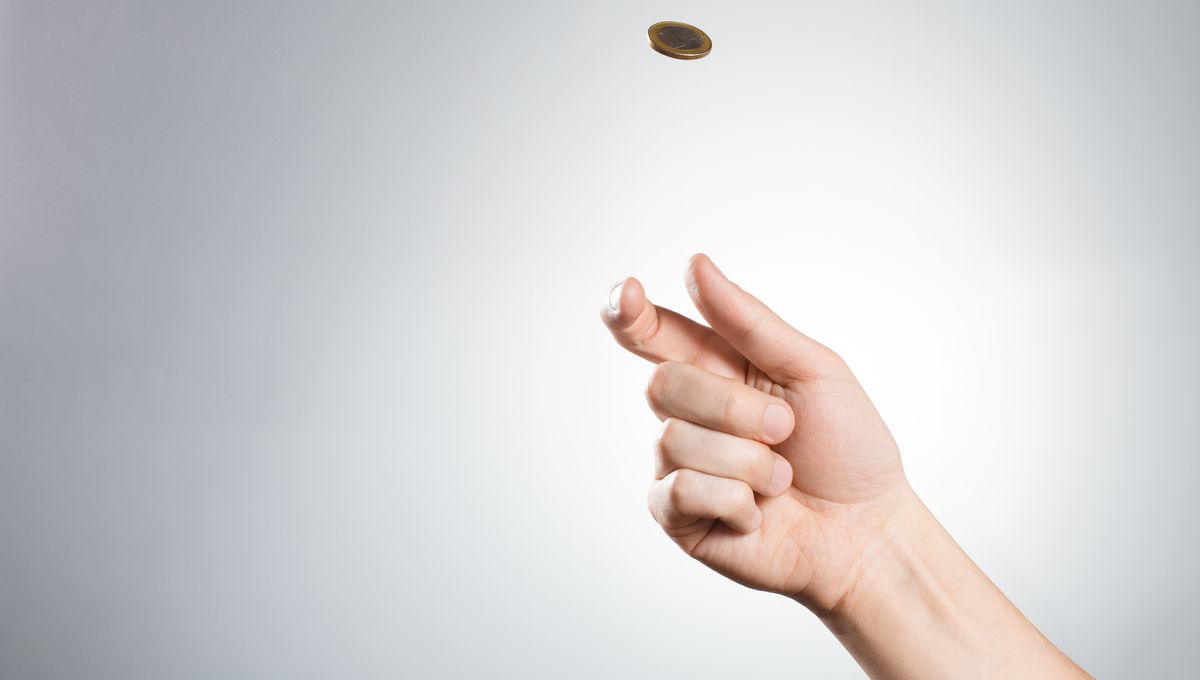
Sometimes, there are things we know, but we don’t know, you know? Like: when you play the lottery, getting the numbers 1, 2, 3, 4, 5, and 6 is technically just as likely as any other selection of six numbers – but somehow, we instinctively feel like that would just never happen.
As it turns out, we tend towards the same cognitive errors with coin flips. Despite being pretty much the iconic example of “random” – well, that and dice rolls – we can’t help but feel like there’s some element of skill involved. Especially when we lose.
“In 11 studies, participants competed against another participant for a positive or negative outcome, determined by a physical or virtual coin flip,” explain Rémy Furrer and Daniel Gilbert, both psychologists at Harvard University, and Timothy Wilson, from the University of Virginia, in the introduction to a new paper this month. “The independent variable was who called heads or tails and flipped the coin: the participant or their opponent.”
“When participants lost the flip, we found an illusion of unfairness: They reported that the process was less fair, were less pleased with their outcome, and found the other person less likable when their opponent flipped the coin,” the team report. “When participants won the flip, they thought it was less fair, and they felt guiltier when they had flipped the coin.”
Now, evidently this is nonsense – okay, coin flips aren’t technically 50/50, but they’re near as damn it, and certainly not so predictable that the nearly 6,000 study participants involved in the 11 studies would be able to influence their outcomes at any scale. But it’s a hard notion to shake: “the illusion of unfairness appears to be a quick, intuitive process that is not easily corrected,” the trio point out.
And here’s the thing: rather than being just a fun little quirk of the human brain, this misconception may have some pretty important real-world impacts. See, we create this illusion of unfairness because we wish the world were sensible – that we have control over our lives, and that ultimately, justice will prevail. It isn’t comfortable for us to accept that a lot of things are, basically, pretty random – so we pretend it isn’t, and just get mad when things go wrong.
“Our results […] speak to the philosophical literature on ‘moral luck,’ which refers to the case in which people are held morally accountable for acts that are not entirely under their control,” the authors explain in the supplemental materials to their paper. “An example is the case of two drunk drivers, one of whom strikes a pedestrian (who ran into the middle of the road) while the other makes it home without incident. Most people would judge the first driver more harshly, even though the presence or absence of pedestrians was not controllable by either driver.”
“In our studies, participants exhibited a strong version of lay moral luck,” the trio write. “They believed that the person who flipped the coin was more responsible for a negative outcome, even though the outcome was random and uncontrollable.”
The study is published in the Journal of Personality and Social Psychology.
Source Link: Coin Flips Are Random, So Why Don't We Think They Are?